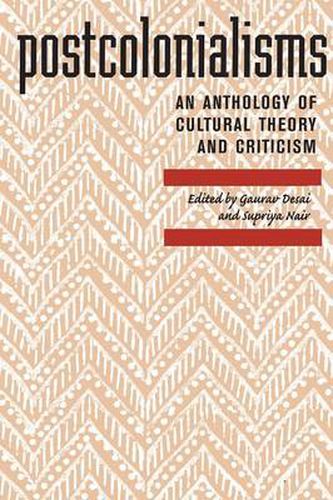Readings Newsletter
Become a Readings Member to make your shopping experience even easier.
Sign in or sign up for free!
You’re not far away from qualifying for FREE standard shipping within Australia
You’ve qualified for FREE standard shipping within Australia
The cart is loading…






Postcolonialisms brings together the key texts which define the study of colonial and postcolonial cultures. This expansive and clearly organized anthology offers the most up-to-date and in-depth overview of this rapidly developing field. Canonical essays explore postcolonialism’s key themes of power and knowledge whilst newer articles expand the analysis to include the discovery of the New World, English colonialism in Ireland, Native American and indigenous identities in Latin America and the Pacific, settler colonies in Africa and Australia, and feminism in Nigeria and Egypt. The inclusion of a broad sampling of histories and theories attests to multiple, even competing postcolonialisms.The careful organization of the volume provides a map of the field. Articles are grouped into sections. Detailed introductions to each section serve to develop key themes, encourage debate, and contextualize the wide-ranging voices intrinsic to the study of postcolonialism.
$9.00 standard shipping within Australia
FREE standard shipping within Australia for orders over $100.00
Express & International shipping calculated at checkout
Postcolonialisms brings together the key texts which define the study of colonial and postcolonial cultures. This expansive and clearly organized anthology offers the most up-to-date and in-depth overview of this rapidly developing field. Canonical essays explore postcolonialism’s key themes of power and knowledge whilst newer articles expand the analysis to include the discovery of the New World, English colonialism in Ireland, Native American and indigenous identities in Latin America and the Pacific, settler colonies in Africa and Australia, and feminism in Nigeria and Egypt. The inclusion of a broad sampling of histories and theories attests to multiple, even competing postcolonialisms.The careful organization of the volume provides a map of the field. Articles are grouped into sections. Detailed introductions to each section serve to develop key themes, encourage debate, and contextualize the wide-ranging voices intrinsic to the study of postcolonialism.